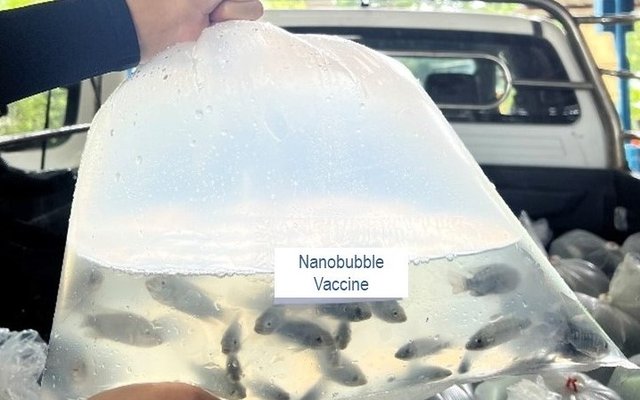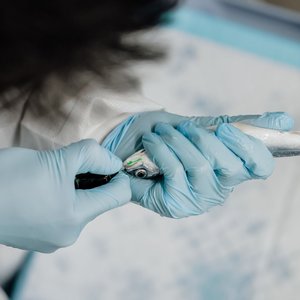Aquaculture faces a significant challenge: bacterial diseases that often lead to heavy antibiotic use. The overuse of antibiotics poses a threat not just to fish health but also contributes to the alarming global rise in antimicrobial resistance (AMR).
Nanobubbles, minuscule gas bubbles (<200 nm), when introduced into water, can improve water quality, boost fish immunity, and enhance the uptake of immersion vaccine into fish gills. Spearheaded by AIT Assistant Professor Dr. Ha Thanh Dong, a project titled Applications of Nanobubbles to Reduce Antibiotic Use in Aquaculture, funded by a CA$872,000 grant from the International Development Research Center (IDRC) in Canada, aims to harness this innovative technology to reduce antibiotic reliance in aquaculture and revolutionize fish health management.
The project’s objective is to enhance immersion vaccine efficacy using nanobubble technology, adapt it for commercial use in tilapia farms, and transfer this knowledge to the private sector. “The project aims to adapt this technology for commercial use in tilapia farms – a game-changer for small-scale farmers who often lack access to advanced health management practices,” Dr. Dong said.
By reducing bacterial disease outbreaks and antibiotic use through nanobubble-vaccine technology, the study represents a significant stride towards a healthier aquatic ecosystem, a safer food supply chain, and a thriving sustainable aquaculture industry in Asia,” Dr. Dong said.
Over 32 months, the project will not only improve fish health but also empower farmers via knowledge transfer sessions on nanobubble technology applications, and training workshops, Dr. Dong stressed. The project is also investing in future scientific talent by offering two PhD scholarships, one postdoctoral position, and two research assistant opportunities.
The project, which commenced on April 1, 2024, and will run until November 2026, is part of the Innovative Veterinary Solutions for Antimicrobial Resistance (InnoVet-AMR) initiative. This global effort, a partnership between Canada’s International Development Research Center (IDRC) and the UK Department of Health and Social Care (DHSC), seeks to mitigate AMR’s emerging risk to global health and food security.













